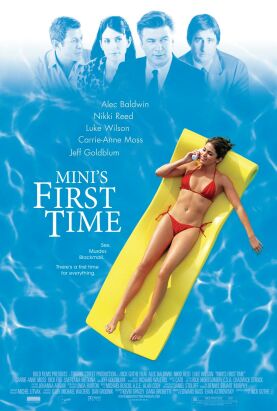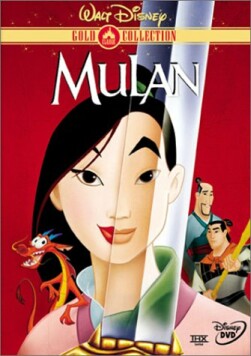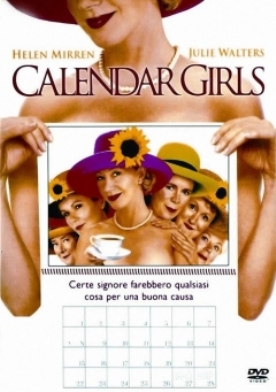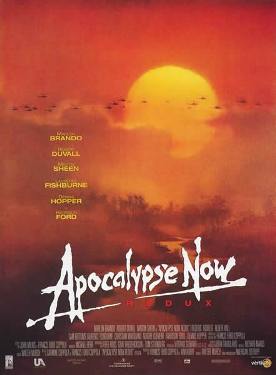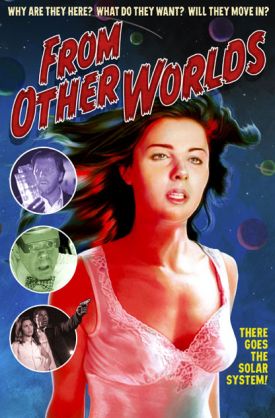Mini’s First Time
Like its title, Nick Guthe’s film, Mini’s First Time, is an elaborate joke at the expense of the idea of youthful innocence. Remember that? The film takes a hint from Nabokov’s Lolita and retells essentially the same story but with the child — a child grown prematurely cynical from living in the Hollywood snake-pit of wealth and ambition — as the corrupter of grown-up innocence. Of course I mean innocence in relative terms. Alec Baldwin’s Martin has at least some residual sense of what it means to be a father and thus just a smidgen of guilt when he starts sleeping with his high-school-aged step-daughter, Mini (Nikki Reed). Mini herself, however, having long since ceased to be a child in any but the technical sense, has no idea at all of traditional family relationships. She hates her mother, Diane (Carrie-Anne Moss), an unstable drunk and failed actress whom she addresses as “mommy” only with contemptuous irony.
Diane, in turn, hates Martin, whom she taunts as “dickless wonder,” and regards Mini with indifference. Martin is just a man to Mini, and her view of the world is that all men are there for her to manipulate with sex — as she seems to have been born knowing how to do. Martin, Mini notices, has just enough decency left to be shocked when she proposes that they kill Diane So she is able smoothly to shift gears and, pretending to have been joking, propose instead that they just gaslight mom so as to have her committed to an asylum. We are left to infer Mini’s expert calculation of precisely what is required to salve Martin’s vestigial conscience, and how many times in the course of their relationship she has to make similar calculations.
There are no prizes for guessing that the ultimate end this moral monster has in her sights is not exactly the Humbert-and-Lo idyll that gives Nabokov’s hero his own saving touch of innocence and pathos. The working out of her elaborate plot to get what she does want makes this a tightly-constructed thriller that offers some of the same satisfactions as old-fashioned noir pictures. But noir was long ago divorced from the sense of sin and malign fate that created it and dragged into the sunlight — specifically the all-forgiving Southern California sun — where it has never quite managed to retain its old imaginative power.
Mini’s First Time
ends with Mini’s voiceover saying: “And in case you’re feeling guilty about having no one to identify with but me, relax. There’s a first time for everything.” It would be a good post-modern joke, except that it is so obviously untrue — another ironic jest, like “Mini’s first time.” For at least a decade, Hollywood has been titillating itself with its own naughtiness in the same way, and decades before that abandoned the old Hays Code, which decreed that “the sympathy of the audience should never be thrown to the side of crime, wrongdoing, evil or sin.” Even without that rule, there’s the unwritten rule that somebody, even if it’s a criminal, must engage the audience’s sympathies. Or, as Mini says, encourage us to “identify” with her.
But Mini’s pride in the cinematic uniqueness with which she repels such self-identification ignores the fact that Neil LaBute, Todd Solondz and Kevin Smith have been working this rich seam of moral guano ever since (at least) Smith’s Clerks of 1994 or Larry Clark’s and Harmony Korine’s Kids of 1995. A very similar trick to Mimi’s was pulled off by John McNaughton’s Wild Things of 1998. Similarly, the idea that childish innocence no longer exists, or perhaps should exist, was the thesis of Cruel Intentions (1999), which had its own recent imitator in Brick, earlier this year.
Like all those films, Mini’s First Time glories in its own wickedness — or, as the literary theorists would say, “transgressiveness.” Ten or a dozen years ago, that was still shocking, at least to ordinary movie audiences. Now it has become just another mannerism or, like conceptual art — the cross in urine, the dead sheep, etc., — a way of laying claim to membership in the artistic vanguard. But beyond its own ambition, I think there is a truth-claim in such movies. Also like conceptual art, they advance the cynic’s claim that disgust, whether physical or moral, is an infallible guide to what they commonly call “reality.” In the same spirit, the magazine called Shock, which features photos of rotting corpses and the like, advertises itself with the ostentatious cry: “Welcome to the Real World!” Real? Why is ugliness and grossness more real than beauty and purity? The answer is not self-evident. But the fashion for disgust as a moral and aesthetic touchstone remains as strong as ever.
That’s of course always presupposing that we are still capable of disgust, as it appears Mr Guthe is not. Like the comedian who has learned to remain straight-faced while telling a joke, he tosses off the appalling Mini with the air of insouciance of one who imagines that the world is full of moral Minis who are only less clever than his own perversely beloved creation. “The film,” he says in his Director’s Statement, “is simply a reflection of the America we live in today.” Well, he would say that, wouldn’t he? I don’t believe it. Mr Guthe may love Mini’s cleverness and wickedness. But he doesn’t really believe that she represents anything like moral reality. That’s an affectation. What he really believes is that this is what movie audiences now want to be told, which they probably do. And the more they are told it, the truer it will become.
Discover more from James Bowman
Subscribe to get the latest posts to your email.

